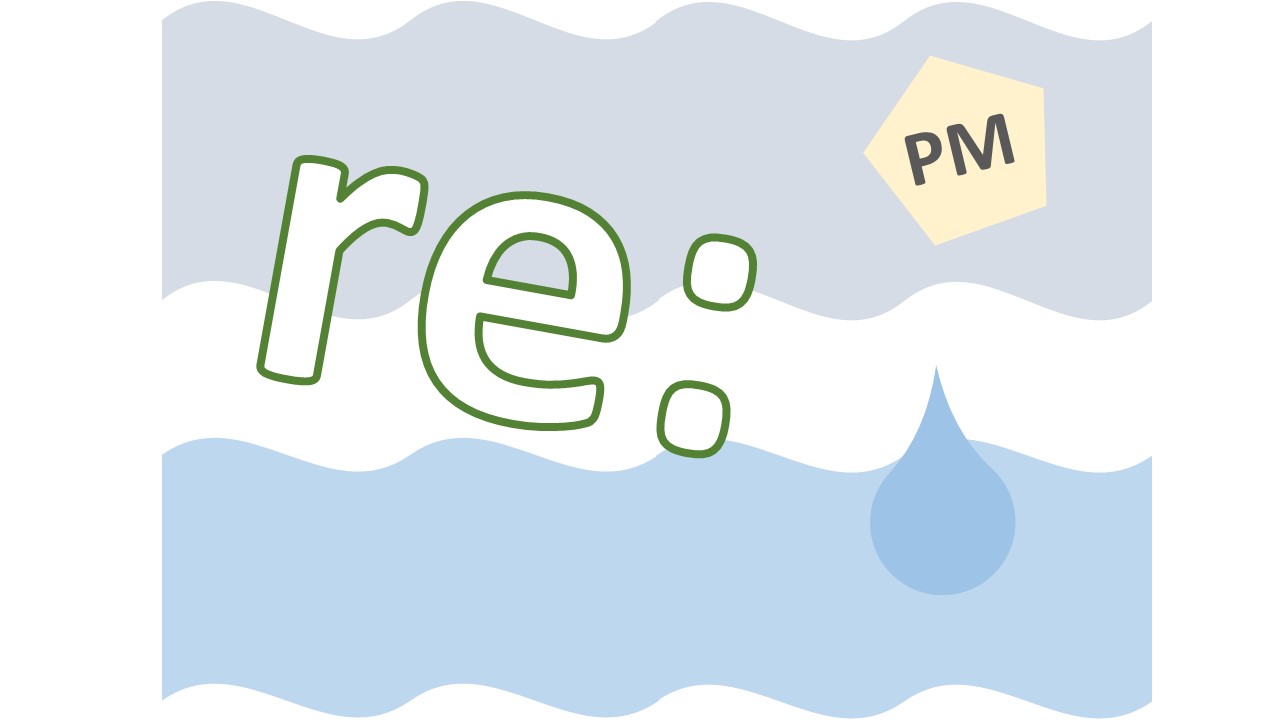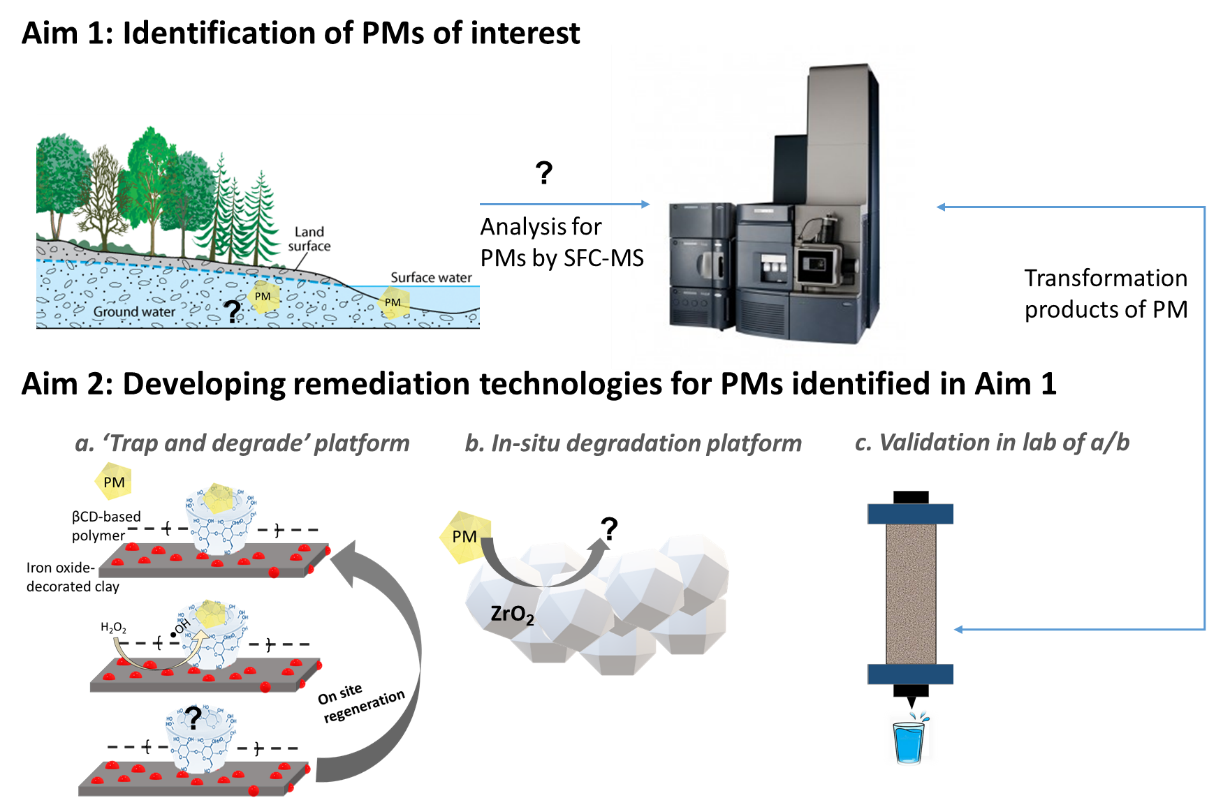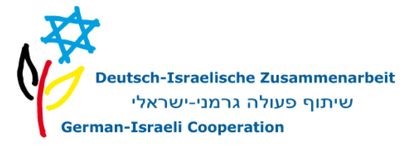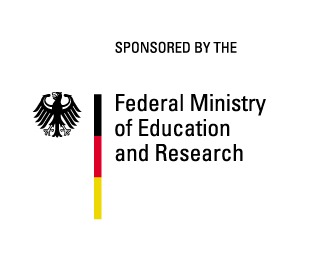re:PM

Removal and Degradation Platforms Tailored for Persistent Mobile Organic Compounds in Drinking Water Sources
Background
Persistent and mobile chemicals (PMs) pose threats to drinking water supply as they easily transport in the environment (through riverbanks, soils, and groundwater aquifers) to reach source waters, are extremely reluctant to conventional treatment processes, and are challenging to identify by standard analytical methods.
In this respect (short chain) PFAS (Per- and polyfluoroalkyl substances) are an obvious challenge, especially considering the most recent drinking water limit values foreseen in Europe. But there are many other PM compounds occurring in groundwater which are poorly known. As a consequence, a protection gap exists for drinking water.
Objectives
In re:PM the partners will use innovative analytical methods and develop innovative materials for treatment, adsorption and degradation, to get control over PM compounds, i.e. to improve knowledge on PM compounds occurring, and to elaborate options for their removal from drinking water sources.
With dedicated analytical methods based on supercritical fluid chromatography-mass spectrometry UFZ will assess the occurrence of PMs in groundwaters of both countries for characteristic contaminant situations (agriculture, wastewater, industry). Innovate treatment platforms based on novel sorbent-catalyst will be developed by Technion and Hebrew University to target the PMs detected in source waters. This work will first focus on (short-chain) PFAS. Besides PM removal the consortium will also consider sorbent regeneration and transformation products with PM properties. Local water utilities in both countries will closely collaborate with the consortium by providing water samples and technical support.

Expected contribution
- Strength the knowledge in monitoring and control of PMs in source waters.
- Advance design of efficient remediation strategies for short-chain PFAS and other PM compounds.
- Promote the exchange in water technologies between Israel and Germany.
Project Duration
01.10.2022 - 30.09.2025
Funded by
Joint German-Israeli Water Technology Research Program, a bilateral cooperation between the German Federal Ministry of Education and Research (BMBF, Förderkennzeichen: 02WIL1658) and the Israeli Ministry of Science and Technology (MOST).
Project Partners
Israel Institute of Technology (Technion), Faculty of Civil and Environmental Engineering, Environmental and soil Chemistry Lab,

Hebrew University of Jerusalem (HUJI), The Robert H. Smith Faculty of Agriculture, Food and Environment, Department of Soil and Water Sciences,

Helmholtz Centre for Environmental Research - UFZ, Department of Analytical Chemistry,




